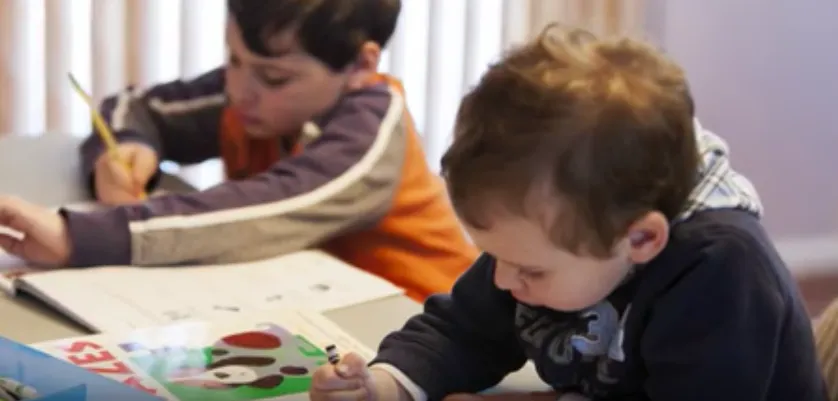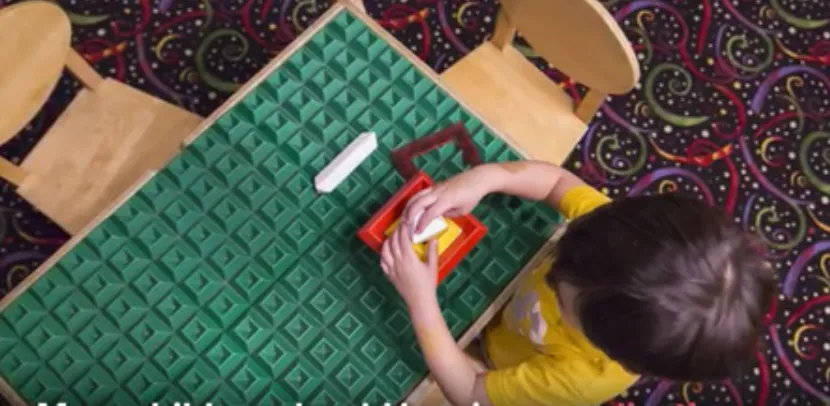Just one in 10 of the 500,000 UK schoolchildren expected to have ADHD are receiving medication that could help them control impulsive behaviour.

"Hundreds of thousands more schoolchildren should be treated for attention deficit hyperactivity disorder (ADHD), say leading experts."
A major study led by University of Oxford academics suggests ADHD is seriously underdiagnosed and says more children should be given medication such as Ritalin, which it found is highly effective.
Concerns have been raised about the number of youngsters overmedicated for the disorder-but the evidence suggests just 12 per cent of those with ADHD are on any form of medication.
We have strong evidence that in the UK, and many countries outside the US ADHD is underrecognised and underdiagnosed,” said Professor David Coghills, a child and adolescent psychiatry expert from the University of Melbournes and a co_author of the study.
“If you don’t recognise and diagnose you don’t have the option to think about the treatment they receive.”
The hallmark of ADHD include short attention span, impulsivity and hyperactivity, and if undiagnosed it can seriously hamper an individual’s life chances, the authors of the study published in the journal The Lancet Psychiatry said.
The study found that all forms of psychiatric medication given to treat ADHD in those aged five to 18 improved symptoms more than a placebo, with Ritalin the best performer.
It’s always difficult to say how many more children should be on medication, Dr Andrea Cipriani, one of the study’s authors from the University of Oxfords told The Independent, saying this was a very individual decision and patients not receiving treatment may have milder symptoms or may not know they’re an option.
itstrue that the more severe the patient, the more likely it is that they are referred to secondary service to be treated.
“The big problem is the great majority of patients in socially deprived areas do not have access to [these] services or there’s a stigma about it, or the awareness of mental health among parents or the schools is not there.
“Diagnosis is a social problem, once they’re diagnosed we have a clear pattern of care.”
This pattern of care, as laid out by the National Institute for Health and Care Excellence (NICE), which recommends treatments as cost-effective for the NHSs, mirrors the findings of the study in recommending Ritalin as the most effective drug.
Ritalin is given to roughly three-quarters of children receiving ADHD medication, but NICE recommends parents receive an ADHD-targeted training programme to help them modify routines to live with ADHD before any medication is considered.
Many parents are concerned about starting children on medication, and worry it is being used to suppress boisterous or impulsive behaviour that once would have been considered normal.
“There is an unfortunate misapprehension in the general public that medications for ADHD are a chemical cosh,” said Professor Emily Simonoff, another of the authors, from the child and adolescent psychiatry department at King’s College London.
“What we know is that those portions of the brain responsible for higher order functioning: planning, organising activities, complex cognitive activities, are underactive in the brains of many people with ADHD.
In this way medications are actually the brain patterns of children with ADHD, she said.
The study reviewed from 133 trials on ADHD drug effectiveness from around the world, including data previously unpublished by drug companies.
Around 24,000 patients took part in the trials, including 13,000 children – and looked at improvements to behaviour as well as which treatments were most acceptable to patients without side effects or other issues.
Among adults, where ADHD affects roughly 2.5 per cent of the population, amphetamines were considered the most effective treatment.
Independent mental health experts said it was good that this study was providing clarity on the benefits of medication, and that this message needs to get out to the public.
“I remember the number of times I get my prescription pad out in a day, we take these decisions very seriously,” Dr Louise Theodosiou from the Royal College of Psychiatrists, told The Independent.
“It’s good that we’re questioned [about over prescribing] because it maintains that honest dialogue
“But I massively believe if more kids were on ADHD medication, there would be more kids not in crime and with better physical and mental health.”
However, other experts questioned the figures on prescription rates, suggesting that far more than 0.5 per cent of the population must be receiving a prescription.
Dr David Traxson of the British Psychological Society, who helped to write the NICE guidelines on ADHD, which came into effect in 2018, said: “We would want to see that before children were medicated some of these other interventions, like the parental training programme, were tried.
“In France they do a thing called social prescribing, which we think is very sensible: for a year they pay for children to join sports clubs, athletics or swimming clubs. At the end of the year they review the practice and the child’s behaviour, and that’s why France has a very low level of school-age children being medicated – around 0.5 per cent.
I am surprised about the suggestion that Britain is prescribing around that amount, because everything live read suggest that medication for ADHD in France is a third of the level in Britain.”

